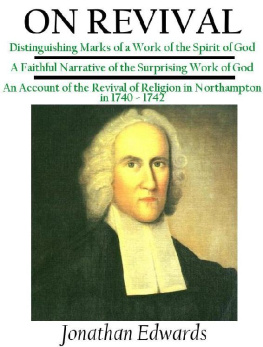Aaron Edwards - Mad Mitch’s Tribal Law: Aden and the End of the Empire
Here you can read online Aaron Edwards - Mad Mitch’s Tribal Law: Aden and the End of the Empire full text of the book (entire story) in english for free. Download pdf and epub, get meaning, cover and reviews about this ebook. year: 0, genre: History. Description of the work, (preface) as well as reviews are available. Best literature library LitArk.com created for fans of good reading and offers a wide selection of genres:
Romance novel
Science fiction
Adventure
Detective
Science
History
Home and family
Prose
Art
Politics
Computer
Non-fiction
Religion
Business
Children
Humor
Choose a favorite category and find really read worthwhile books. Enjoy immersion in the world of imagination, feel the emotions of the characters or learn something new for yourself, make an fascinating discovery.
- Book:Mad Mitch’s Tribal Law: Aden and the End of the Empire
- Author:
- Genre:
- Year:0
- Rating:4 / 5
- Favourites:Add to favourites
- Your mark:
- 80
- 1
- 2
- 3
- 4
- 5
Mad Mitch’s Tribal Law: Aden and the End of the Empire: summary, description and annotation
We offer to read an annotation, description, summary or preface (depends on what the author of the book "Mad Mitch’s Tribal Law: Aden and the End of the Empire" wrote himself). If you haven't found the necessary information about the book — write in the comments, we will try to find it.
Aaron Edwards: author's other books
Who wrote Mad Mitch’s Tribal Law: Aden and the End of the Empire? Find out the surname, the name of the author of the book and a list of all author's works by series.
Mad Mitch’s Tribal Law: Aden and the End of the Empire — read online for free the complete book (whole text) full work
Below is the text of the book, divided by pages. System saving the place of the last page read, allows you to conveniently read the book "Mad Mitch’s Tribal Law: Aden and the End of the Empire" online for free, without having to search again every time where you left off. Put a bookmark, and you can go to the page where you finished reading at any time.
Font size:
Interval:
Bookmark:
CONTENTS
Aden, 20 June 1967: two army Land Rovers burn ferociously in the midday sun. The bodies of British soldiers litter the road. Thick black smoke bellows above Crater town, home to insurgents who are fighting the British-backed Federation government. Crater had come to symbolise Arab nationalist defiance in the face of the worlds most powerful empire.
Hovering 2,000 ft. above the smouldering destruction, a tiny Scout helicopter surveys the scene. Its passenger is the recently arrived Commanding Officer of the Argyll and Sutherland Highlanders, Lieutenant-Colonel Colin Mitchell. Soon the worlds media would christen him Mad Mitch, in recognition of his controversial reoccupation of Crater two weeks later.
Mad Mitch was truly a man out of his time. Supremely self-confident and debonair, he was an empire builder, not dismantler, and railed against the national malaise he felt had gripped Britains political establishment. Drawing on a wide array of never-before-seen archival sources and eyewitness testimonies, Mad Mitchs Tribal Law tells the remarkable story of inspiring leadership, loyalty and betrayal in the final days of British Empire. It is, above all, a shocking account of Britains forgotten war on terror.
Aaron Edwards is a Senior Lecturer in Defence and International Affairs at the Royal Military Academy Sandhurst, specializing in terrorism and counter-insurgency. He is the author and editor of several books, including Defending the Realm? The Politics of Britains Small Wars since 1945, and has lectured all over the world on aspects of national and international security. A Fellow of the Royal Historical Society, he holds a PhD from the Queens University of Belfast. Born and raised in Belfast, he now lives with his wife in Hampshire.
TRANSWORLD PUBLISHERS
6163 Uxbridge Road, London W5 5SA
A Random House Group Company
www.transworldbooks.co.uk
First published in Great Britain
in 2014 by Mainstream Publishing
Copyright Aaron Edwards 2014
Aaron Edwards has asserted his right under the Copyright, Designs and Patents Act 1988 to be identified as the author of this work.
A CIP catalogue record for this book is available from the British Library.
Version 1.0 Epub ISBN 9781780577487
ISBN 9781780576282
This ebook is copyright material and must not be copied, reproduced, transferred, distributed, leased, licensed or publicly performed or used in any way except as specifically permitted in writing by the publishers, as allowed under the terms and conditions under which it was purchased or as strictly permitted by applicable copyright law. Any unauthorized distribution or use of this text may be a direct infringement of the authors and publishers rights and those responsible may be liable in law accordingly.
Addresses for Random House Group Ltd companies outside the UK can be found at:
www.randomhouse.co.uk
The Random House Group Ltd Reg. No. 954009
1 3 5 7 9 10 8 6 4 2
For David
The superiority of Aden is in its excellent harbours, both to the E. and to the W.; and the importance of such a station, offering, as it does, a secure shelter for shipping, an almost impregnable fortress, and an easy access to the rich provinces of Hadramaut and Yemen, without the long voyage to Mokh, is too evident to require to be insisted on.
Captain S.B. Haines, Indian Navy, communicated by the Court of Directors of the East India Company, February 1839
I weighed the English army in my mind, and could not honestly assure myself of them. The men were often gallant fighters, but their generals as often gave away in stupidity what they had gained in ignorance.
T.E. Lawrence, Seven Pillars of Wisdom: A Triumph (1926)
The British Empire, assembled over two centuries and dismantled in two decades, will survive a little longer in memory.
Tom Pocock, East and West of Suez: The Retreat from Empire (1986)




BRITAIN ONCE HAD an empire over which the sun famously never set. Stretching from the wilds of Canada to the barren deserts and deep wadis of South Arabia and beyond to the tropical jungles of India in the subcontinent, Britannia really did rule the waves. By the late 1960s, however, Britains imperial role had all but ceased and its vast empire had crumbled away. This was thanks in part to indigenous populations rising up and demanding independence, though the ending of an East of Suez role by 1971 can also be attributed to the policies of post-war Labour governments that embraced decolonisation as a point of principle in lieu of the political will and economic resources to maintain an overseas empire.
Even though it took two centuries to build up the largest empire the world has ever seen it was dismantled in an inordinately short amount of time. In little over two decades, British imperial holdings had all but vanished, with the exception of a tiny handful of islands and continental footholds in the Americas, Europe and Asia.
This book asks how and why that happened by adopting a worms-eye view of the end of empire from one of the last colonies to fall: Aden, now part of Yemen, which lay at the juncture where the Red Sea meets the Indian Ocean. It details the political, socio-economic and military dimensions of the Aden adventure, rescuing from obscurity the contributions made by those who administered and enforced British rule, as well as the actions of the many Arabs who collaborated with, or directly challenged, sometimes violently, the worlds most powerful empire.
Historians of empire have generally shied away from telling the story This is all the more curious given its reputation as the crossroads where the old and new worlds meet. Aden offered a strategic base from which Britain could project its military power while protecting the key commercial arteries of empire, particularly India, and was the first colony to be acquired in the wake of the accession of Queen Victoria.
The Bombay government dispatched a force to Aden then a tiny fishing village of 600 inhabitants to secure its cession from the rule of the Sultan of Lahej. On 19 January 1839, British naval forces bombarded the village, reducing it to rubble. After parleying with the Sultan, a British naval officer, Captain S.B. Haines, wrested control of Aden and set about integrating it into the wider imperial system, while the Sultan and his family retreated to their grand whitewashed palace in Lahej.
Aden grew from its humble beginnings as a coaling station to become one of the largest bunkering ports in the empire by the mid twentieth century, ranking behind only London and Liverpool. Its significance reached its peak after the opening of the Suez Canal in 1869 but then declined after India gained independence in 1947 and as a result of the Suez Crisis in 1956, when the Canal temporarily closed causing shipping traffic to drop by a staggering 80 per cent. By the mid 1960s, amidst austere economic constraints and a permanent shift away from maritime-based grand strategy, the London government had decided to release Aden and its hinterland from the arthritic grip of its ailing overseas empire, though they wished to choose their ruling successors and in doing so somehow stem the rising tide of Arab nationalism.
Next pageFont size:
Interval:
Bookmark:
Similar books «Mad Mitch’s Tribal Law: Aden and the End of the Empire»
Look at similar books to Mad Mitch’s Tribal Law: Aden and the End of the Empire. We have selected literature similar in name and meaning in the hope of providing readers with more options to find new, interesting, not yet read works.
Discussion, reviews of the book Mad Mitch’s Tribal Law: Aden and the End of the Empire and just readers' own opinions. Leave your comments, write what you think about the work, its meaning or the main characters. Specify what exactly you liked and what you didn't like, and why you think so.










